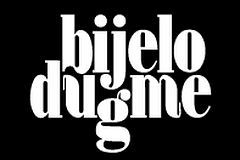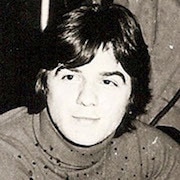Korni Grupa (Serbian Cyrillic: Корни Група, trans. Korni Group) was a Yugoslav rock band from Belgrade, also known as the Kornelyans, the name which they used during a short-lived foray into the international market. Formed in 1968, Korni Grupa was one of the first Yugoslav rock bands to achieve major mainstream popularity, and the first Yugoslav supergroup. Korni Grupa is considered to be one of the most prominent and influential bands in the history of rock music in Yugoslavia.
Since the beginning of their career, the band had developed a two-way musical development, one of commercial pop rock music aimed for mainstream popularity, and the other, an artistically influenced progressive rock sound crossed with influences of psychedelic, folk, jazz and symphonic rock music. The band was led by keyboard player Kornelije Kovač who with the bassist Bojan Hreljac and drummer Vladimir Furduj and guitarist Velibor Kacl formed the band. After changing several vocalists, Miroslava Kojadinović, Dušan Prelević and Dalibor Brun, and releasing several singles, the band's vocalist became Dado Topić who brought along his former bandmate Josip Boček as the replacement for Kacl. The lineup recorded an album's worth material, released posthumously as 1941., before Topić's departure. His substitute was Zdravko Čolić who after a six-month period left the spot to Zlatko Pejaković.
With Pejaković the band recorded their eponymous debut album, the first full length rock album in SR Serbia and fourth in Yugoslavia and an English language second album Not an Ordinary Life, under the name Kornelyans. The band had also performed at the 1974 Eurovision Song Contest reaching the 12th place, owing to which, along with the little success of the second album, the band had decided to split. They held two farewell concerts at the Novi Sad Studio M and disbanded on December 1, 1974. A part of the recordings from the concerts was released on the posthumous compilation album Mrtvo more, the first double album in the history of Yugoslav rock music. After the band disbandment, the band members pursued careers as studio musicians, producers and solo acts and reunited in 1987 with Topić on vocals for two performances, in Zagreb and Belgrade.





